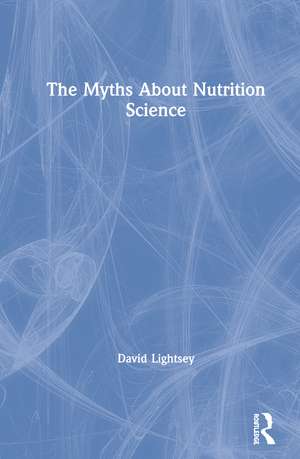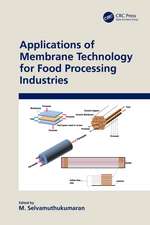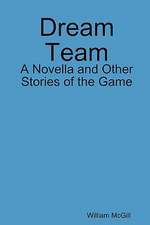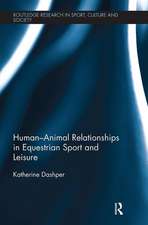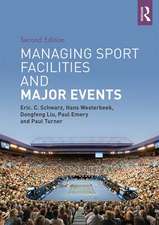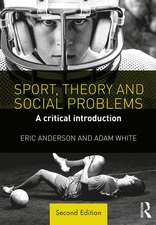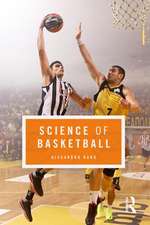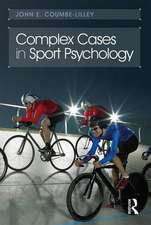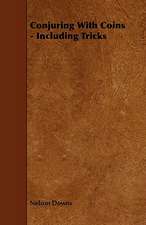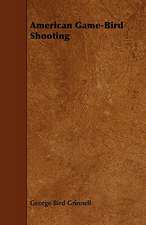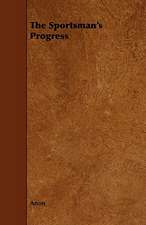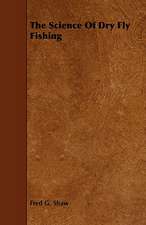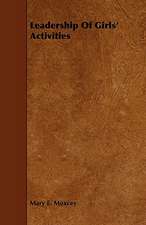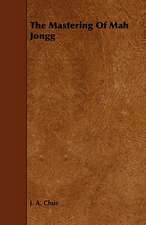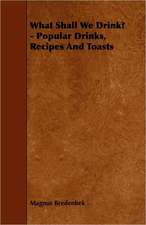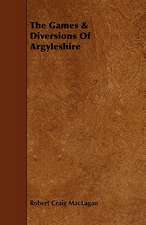The Myths About Nutrition Science
Autor David Lightseyen Limba Engleză Hardback – 2 dec 2019
The aim of The Myths About Nutrition Science is, then, to address the quagmire of misinformation which is so pervasive in this area. This will enable the reader to make more objective, science-based lifestyle choices, as well as physical training or developmental decisions. The book also enables the reader to develop the necessary critical thinking skills to better evaluate the reliability of the purported “science” as reported in the media and health-related magazines or publications.
The Myths About Nutrition Science provides an authoritative yet readily understandable overview of the common misunderstandings that are commonplace within consumer and athlete communities regarding the food production process and nutrition science, which may affect their physical development, performance, and long-term health.
| Toate formatele și edițiile | Preț | Express |
|---|---|---|
| Paperback (1) | 359.02 lei 43-57 zile | |
| Taylor & Francis – 2 dec 2019 | 359.02 lei 43-57 zile | |
| Hardback (1) | 983.86 lei 43-57 zile | |
| Taylor & Francis – 2 dec 2019 | 983.86 lei 43-57 zile |
Preț: 983.86 lei
Preț vechi: 1199.82 lei
-18% Nou
Puncte Express: 1476
Preț estimativ în valută:
188.35€ • 193.71$ • 156.25£
188.35€ • 193.71$ • 156.25£
Carte tipărită la comandă
Livrare economică 17 februarie-03 martie
Preluare comenzi: 021 569.72.76
Specificații
ISBN-13: 9780367313340
ISBN-10: 0367313340
Pagini: 242
Ilustrații: 27
Dimensiuni: 152 x 229 x 14 mm
Greutate: 0.47 kg
Ediția:1
Editura: Taylor & Francis
Colecția Routledge
Locul publicării:Oxford, United Kingdom
ISBN-10: 0367313340
Pagini: 242
Ilustrații: 27
Dimensiuni: 152 x 229 x 14 mm
Greutate: 0.47 kg
Ediția:1
Editura: Taylor & Francis
Colecția Routledge
Locul publicării:Oxford, United Kingdom
Public țintă
General, Postgraduate, Professional, and UndergraduateCuprins
1 The Consumer/Athlete’s Source of Nutrition Information: Who Is Reliable?
2 The “Health News”: Why the Media Are Unreliable
3 Chemophobia and the Boy Who Cried Wolf
4 The Fabricated Organic Food Market
5 Obesity: Whose Responsibility Is It? The Blame Game
6 Protein Needs of Athletes: Seven Misconceptions
7 Three Reasons Supplements Will Not Benefi t Most People
8 Antioxidant Supplements: Another Magic Bullet, or False Icon for Better Health and Performance?
9 Supplements: Are You Playing Russian Roulette With Your Health?
10 Anti-Infl ammatory, Detox, and Ketogenic Diets
11 Genetically Engineered Food: “Frankenfood” or Immensely Benefi cial Technology?
12 Miscellaneous Myths and Misinformation
Index
2 The “Health News”: Why the Media Are Unreliable
3 Chemophobia and the Boy Who Cried Wolf
4 The Fabricated Organic Food Market
5 Obesity: Whose Responsibility Is It? The Blame Game
6 Protein Needs of Athletes: Seven Misconceptions
7 Three Reasons Supplements Will Not Benefi t Most People
8 Antioxidant Supplements: Another Magic Bullet, or False Icon for Better Health and Performance?
9 Supplements: Are You Playing Russian Roulette With Your Health?
10 Anti-Infl ammatory, Detox, and Ketogenic Diets
11 Genetically Engineered Food: “Frankenfood” or Immensely Benefi cial Technology?
12 Miscellaneous Myths and Misinformation
Index
Notă biografică
David Lightsey is a Food and Nutrition Science Advisor to Quackwatch.org. He has been combating health misinformation in the health marketplace for 31 years, with the non-profit consumer advocacy organization, National Council Against Health Fraud until 2011, as well as with Quackwatch.org (www.quackwatch.org). He has appeared on NBC Dateline (Hype In A Bottle—1996), regarding the deceptive marketing methods used by the sport supplement industry to exploit and fleece athletes, as well as CBS Evening News (2003), regarding the designer steroid issue. The peer review of his first book, Muscles Speed and Lies—What the Sport Supplement Industry Does Not Want Athletes or Consumers to Know, from the American College of Sports Medicine, stated “this book is essential reading for the interested athlete or coach. Particularly, it should be required reading for those studying in the field of clinical sports science (undergraduates, graduate students), allied health professionals (ATCs, personal trainers, and dietitians), and primary care sports medicine physicians.” The International Olympic Committee chose this book to be included in “the most important bibliography of the holdings of the IOC Medical Commission Collection of Sports Medicine for reference texts and scientific journals published until 2010.” Other examples of where his consumer education work has appeared include peer review journals such as the British Journal of Cancer, Lancet, American Journal of Emergency Medicine, National Strength and Conditioning Association Journal, and PLOS One, as well as many national media outlets.
Descriere
The Myths About Nutrition Science provides an authoritative, yet readily understandable, overview of the common misunderstandings that are commonplace within consumer or athletic communities regarding the food production process and nutrition science, which may affect their physical development, performance, and long-term health
